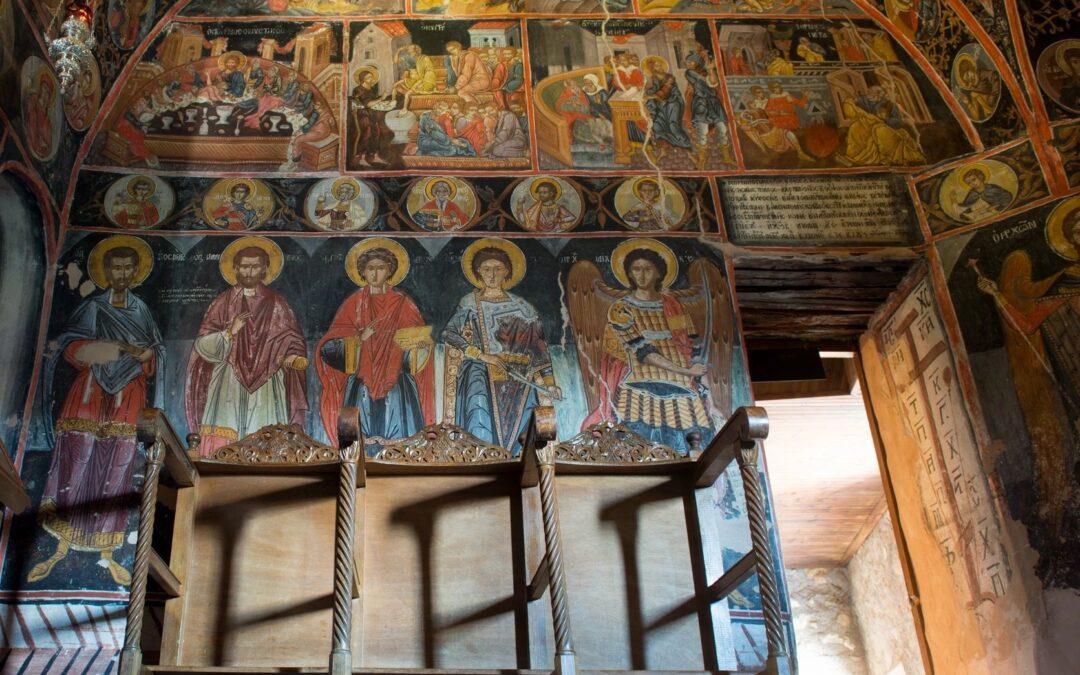I confess it’s true: I love theology books. I love the smell, the feel, and the usually deep engagement. The one area of my bookshelf that’s largely empty (though growing), is Church history. Having not read much Church history in a systematic way until my late 20’s, I’m playing “catch-up.” If you’re anything like I was, you’re skeptical that there’s really any point to reading church history.
Do we actually need to read that stuff? Weren’t most of those guys Roman Catholics? (Gasp!) We have plenty of good theology books now…why aren’t those good enough? Read on.
1. It gets you to follow the “long conversation”
As a person alive in 2021, you are the product of all the events that lead up to this moment. If you are a Christian, that means you also believe certain things based on the developments in theological history. (Unless, of course, you just believe whatever pops into your head…which is a bad thing) No matter which denomination or branch of Christianity you align with, your theology has been bred by 2000+ years of thinking.
Reading from the great works of Church history will allow you to understand how we got to today. For the Protestant, this is especially important: Why did the Reformation happen? What were its goals? Was it the proper thing to do or was the Reformation really a rebellion against God’s one true Church?
Reading Church history also gets us to examine what views are taken to be “Orthodox Christianity,” and what views make it such that someone has strayed from the Faith. For example, who are Augustine and Pelagius? Which one did the church side with? This is important to know because one of them is considered a Christian and one of them is considered a heretic.
Understanding the conversation that has happened through Church history helps us understand how we got to what we believe today.
2. It helps us examine our roots
This is similar to point 1. When we read church history, we get to connect to those who have come before us. What did the great thinkers in Church history have to say? Where were they right? Where were they wrong? How did they build on each other?
By reading in Church history you get to study with some of the brightest minds in Christianity: Augustine, Boethius, Thomas Aquinas, John Calvin, Jacob Arminius, Martin Luther, Jonathan Edwards, John Wesley, Charles Spurgeon, J. Gresham Machen, Charles Ryrie, Dwight Pentecost, etc. All of these great thinkers left behind writings that allow us to “study at the feet” of these great thinkers.
While you might not agree with all of these men (For example, Calvin and Arminius/Wesley are pretty opposed to each other) it does allow us to still contemplate and reflect on what some of the most influential writers in history have said.
As an added note, examining our roots helps us better appreciate the writers we have today. Thinkers like Billy Graham, R.C. Sproul, John MacArthur, Tim Keller, etc don’t exist in a vacuum any more than the rest of us do. They do have been influenced by those who have come before us. Reading up can help us appreciate contemporary writers too!
3. It gets us to challenge our own views
If you never challenge your own views, your own thinking is severely hindered. I’ve written a bit on why it is helpful to assume that we might be wrong about our beliefs at times. Doing this not only helps us be more sympathetic to others, but it also helps us either discard bad beliefs and/or strengthen good ones.
Throughout the history of the church, there have been many different views held by many wise thinkers. To think that we are currently at the sum total of correct thought is arrogant. While I certainly don’t think that everything 21st century Christians is wrong, it is helpful for us to ask if past thinkers had anything wise to say that would speak into our current situations.
As in all things, we want to approach thinking and our understanding of the present and the past with a humble spirit. Understanding history helps us understand how we got to where we are, helps us connect with our theological roots, and helps to challenge and correct our own thinking.
